I’m late to my own party, but April 1, 2020 marked twelve years since I quit my job as a lawyer to travel the world.
By now you guys know the drill: each year I wrote an annual update post for April 1st, about my state of mind and the state of my business. I’d usually also have a get together with friends to celebrate, wherever I was. In Saigon, it was a party with bun cha and rice vodka. In Oaxaca, it was mezcal and quesadillas.
This year, the date fell during the long trek back to Montreal from Florida. I was trying to move quickly enough to get home safely, but slow enough to not exacerbate my spinal CSF leak.
While I was technically on the road on April 1st, the date involved a little less celebration and a little more pandemic than usual.
Since today is my 41st birthday, I thought I would use the occasion to do that annual write-up.
Here’s a post about what’s going on, and some of what comes next.
Table of Contents
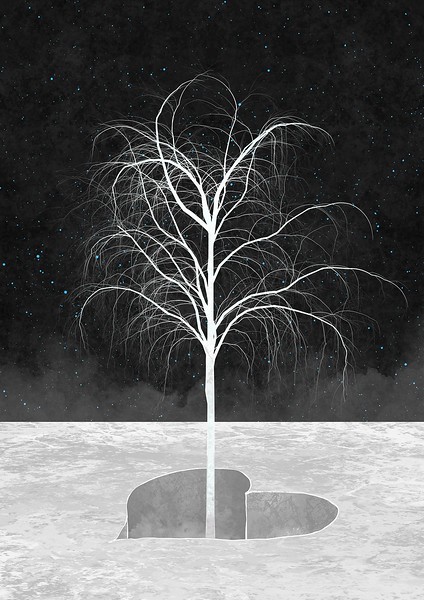
In my birthday post last year I talked about how the way out of despair is to intentionally move through it. Since the pandemic kicked off, I’ve gotten more messages from readers asking what that kind of deliberate mindset means, and how they can keep hope for a better future. Hope is a complicated thing, because to have no hope at all opens the doors to despair. But to only live in a space of hope means you are deeply unsatisfied with what is. Somewhere between those two places is a space where you actively choose to lean into your reality, even if your reality isn’t wonderful. It’s easier to paper over things or live from a place of denial. As with other crutches, however, those tactics provide short term relief without any long-term processing.
It’s easier said than done, I know.
From Resistance to Resilience
In this very long, very complicated few years, so much of my work has included the discipline to move out of my mind and back into my heart. That sounds hokey, but it’s also critical to survive when life punches you in the face. And it’s just another way of saying that your attention is best spent focusing on the present moment. Or, for those who prefer their Eckhart Tolle, that the present moment is all we have.
He’s not wrong, though. It is pretty futile to resist what actually is, because it actually is. To dwell in regret, or to try and change the future based on prior actions, is wasteful at best and yet we do it over and over again. That we do this despite not being able to control the past or the future creates tension, and that tension usually causes even more anguish.
How we handle the present moment is another way to look at Viktor Frankl’s advice from Man’s Search For Meaning, which I referenced in my initial post about the spinal tap. When forces beyond your control take everything away from you, they still can’t take away your freedom to choose how you respond to the situation.
What happens, then, when your present kind of sucks? Or, as many of us feel right now, deeply truly absolutely sucks? It doesn’t change the work. With each blow, we have to pick ourselves back up and try to focus our mindset on what we can control and do and change. Nothing is certain, and nothing ever was. We allow ourselves to believe it is to give an illusion of safety, and when that illusion is taken away – as it is during this pandemic – it’s even harder to stay afloat.
It may feel infuriatingly impractical to discuss present-moment attention when the world is burning. It sounds so simple and also so amorphous. But resisting the present is often a terrible waste of energy, bleeding out into the abyss. Letting that resistance go is the starting block to moving through, and the cornerstone to resilience in difficult times. When everything is uncertain, like in 2020, it’s even more important for our mental and physical health to reground ourselves in the present moment. Doing so does not take away from actions or activism, nor does it equate to complacency. It’s a mental process that allows ourselves to stand more firmly in the now, and be calmer as a result.
The winter that I releaked, I also lost my stepdad’s mum, my grandfather, several friends, and the future I thought I was slowly working toward. Grief upon grief, until it felt like I was drowning over and above the physical pain. Meditation helped create more space to grieve, but didn’t stop my feeling suffocated. I had the help of incredible friends, a therapist, and a lot of good books to do so, but I still had to find it in me to do the work. No one else could do it for me. I had to refocus myself again and again on the present moment. Eventually the waves of grief got smaller and smaller until it didn’t feel like I was drowning anymore.
Grief upon grief is what it feels like to exist in today’s world, for many of us. Loss of human patterns and function, loss of humans, loss of freedom. The stages of anger and grief and confusion and brittle injustice feel overwhelming, but they cannot stop you from reminding yourself of what you still do have each day. They cannot stop you from finding gratitude within the broad feeling of loss.
I receive a lot of emails from readers saying they understood more of the grief and the isolation from my leak journey as they too were in lockdown during COVID-19. The collective grief is an important thing to acknowledge, and while the new normal has yet to take form there’s no question that ignoring our feelings only adds to the discomfort. In times like these, it’s also important not to compare individual suffering. Pain is not a competition. Misery is not a competition. We’re all going through it now, in a myriad of dizzying ways. Perspective is so important but very hard to maintain when you are going through the shit. Social media, of course, doesn’t help.
One way of maintaining perspective is to refocus your aperture on the macro, while challenging yourself to accept the micro. In the meta-suffering of the collective, our smallness abounds. As Jess Zimmerman said in a recent Catapult piece, “A glittering carpet of human misery is spread in front of us every day. Of course it feels obscene to say you’re sad.”
You need to say you’re sad these days, no matter how obscene it feels. It benefits no one to keep that inside in 2020, where sadness cloaks everything and the world feels like it’s shifted off its axis for one mad season (maybe more). The vulnerability helps all of us, too. As it’s helped me, sharing here the last few years, in the middle of my own crisis of identity. Acknowledge the sadness, let it go, bring yourself back to the present moment.
In a few days, it’ll also be three years since the spinal tap. I thought by now I’d be better and I’m not. I think you all thought I’d be better too. The joke’s on all of us because here I am, not so much better. I am, though, much better at handling the mental spikes and crashes that come with a volatile chronic condition. I’m better at accepting that this is where my life is. It may be indefinite, it may not.
But right now, it is.
When talking about surrender, a good friend cited a Hindu proverb: a baby is born with clenched fists, and a person dies with their hands open. There’s a Yiddish proverb that says the same. And therein lies the challenge of life. To let go, over and over. To sit in the muck and the mess and the grief, and continue to try and unclench those fists and let go.
Surrender does not mean you give up on things getting better. Nor does it mean you give up on yourself. But so much advice these days includes the doing – the exercise, the journaling, the meditation and more. Yes, all of those are important tools to help support your mind and spirit. When I am “in” it though, when I am so in it that I can barely see light at the top of that dark, deep well, the last thing that helps me is a list of things that I ought to be doing but am not.
That list just adds resistance.
And more resistance means less letting go. It means more frustration when you’re grieving. It skips that first critical step of just laying down in the well and going, “Ok I’m here. It seems dark and I can’t see any light but it’s where I am now and I know that no matter how my mind is lying to me right now, I won’t be here forever.”
Sounds laughable, right? But it’s been the only way through.
Besides, what’s the alternative? Fearing the future, or feeling saudade for the past. Neither will help me get through today. I’ve reverted back to an anxious mind many, many times and lost my present moment focus. In times like these, how could I not? It takes a conscious reminder to dust myself off and try to move back to the now. I’ve learned anxiety is simply dragging your past into your future, causing a double whammy: not only are you living in worry, but you’re also letting the present pass you by.
So how do we mentally get through?
We feel the anger and grief.
We accept the present.
Surrender to an uncertain future.
Experience the grief and the pain without resistance.
And do over and over, it every single day. Surrender allows you to hold the duality of hope without specific attachment. And from there we can make better decisions, because we make them from what is, not from what we wish it was or fear it may be.
It’s messy, and it’s painful, and it’s also simply life.
I accept that my leak is leaky and my mind is strong. I continue to look for ways to get well, and I may or may not find them. That future hope doesn’t blot out my ability to find gratitude today.
Anyhow, hey – I’m 41!
My leak is ongoing. Other chronic issues are ongoing. Still, I am here today, alive, feeling loved, trying to find gratitude for what I can and remind myself that human connection is part of what sees us through.
What’s Next for Legal Nomads?
With increased acceptance of my day-to-day reality came a sense of increased dissonance when I looked at Legal Nomads. That smiling person on a motorbike on my front page is no longer me. Telling stories through food is no longer me. Those are part of me, sure, and I am proud of whatever roads took me to them.
Still, I would open my dashboard every so often and think, “what am I even doing? Is there a point to any of this anymore?” Questions that many of us are asking these days, and ones that take sharper form because the physical opportunity costs of working are so great for me.
I love writing, and my mind misses writing. Writing this post in morning increments felt like coming home. My body, though, it doesn’t so much like me writing. My leak symptoms worsen when I do and while I have tried creative solutions like voice to text or transcription, they don’t scratch the writing itch. I love the typing itself, the act of words falling out of my brain and rearranging themselves into prose.
So I decided I will do something a little more drastic.
Killing my Darlings
In order to create a good piece of writing, you often need to first cull those paragraphs or characters you feel attached to even though they no longer contribute critically to the whole. You need to “kill your darlings” to make a better-working piece.
For me, killing my darlings results not from ornamental prose but from the physical limitations on my ability to work. While my creative time is endless, the actual creating takes the kind of physical overhead I no longer have at my disposal. I’m divesting some of the projects I’ve clung to in the hopes that I’ll be able to build something exciting for my community.
I have a half-finished writing course workbook, and a full outline for a product for lawyers who want to change careers.
Neither will be doable in the next very long while with my limitations. But the reason I wanted to build these products was because readers asked for them, and clearly had a need for them. So I’ve partnered with people I trust to fix those pain points since I cannot.
How to Tell Better Stories in a Digital World: My Storytelling Course
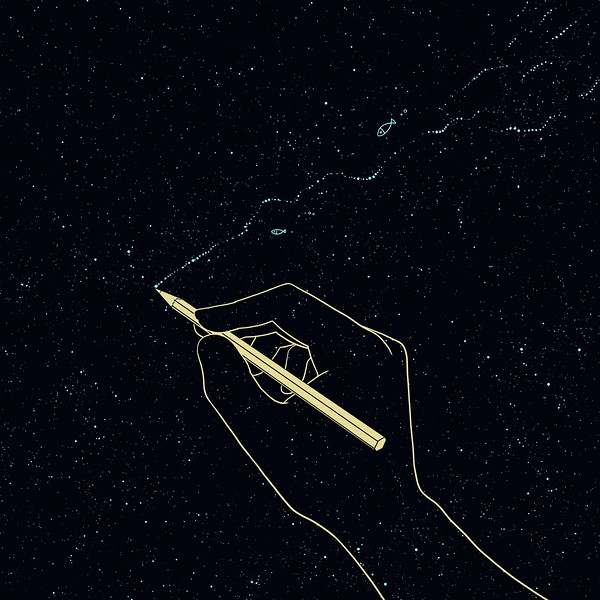
I planned to do a storytelling course, and I have a half-completed workbook and many sign ups from readers. I’ve tried to think of ways that I can do this project while leaking, because I love to teach storytelling. At the moment, I don’t think it’s possible to do so without eating into all my uptime.
So I’ve partnered with two people I trust to offer two different courses; which one might be best for you depends on your needs.
Storytelling Course with Lola Akinmade Åkerström
How can we craft and share those stories with others that can create empathy and connection with others? How can we cradle with care the responsibility of telling other people’s stories? How do you hook, engage, intrigue, and keep your readers all the way to your closing message? How can you find threads and narrative arcs to structure your story?
These are all questions Lola addresses in her comprehensive course about storytelling.
The course is self-paced, and includes lectures, video modules, and lots of case studies and examples to illustrate the lessons Lola teaches. Lola just launched this course, and I contacted her to see if I could refer my readers her way because it’s a great alternative to what I planned to do.
Lola has offered $50 off for Legal Nomads readers if you let her know that’s where you came from for the course.
Blogging Course with Mike Sowden
I’ve also referred some of you to my friend Mike*, who has a course called Engage! A Storytelling Course for Bloggers. A lot of readers aren’t bloggers and thus want a broader more technical story instruction, which Lola can provide. For those who are in the blogging world, and/or don’t have the budget for a larger course,Mike’s course is a great option.
His course is self-paced over 8 weeks, aimed at teaching bloggers how to be a better storyteller. It includes email lessons, audio lessons, PDF guides (including my fave, “How To Edit The S#!t Out Of Your Writing”), and 1:1 support from Mike.
He has offered a $15 discount for Legal Nomads readers: enter the code donkeyballs2020 or use this link to purchase.
*Mike also kindly edited this post, and many others, for me. Mike is a good set of eyes for your brain.
Leaving Law Behind with Casey Berman and Adam Ouellette
My Thrillable Hours series exists to inspire lawyers feeling deadened by their job options to find the courage to think more broadly. I created it to help with fear, career change, and life after law. Though I also had plans to make a course to help lawyers take a leap, I didn’t get to finish it.
Casey and Adam have, and so I’m partnering with them to fix the pain point some of my readers have. They’ll help lawyers through the process of leaving the law, if that’s what they want, and help them overcome the blocking beliefs and self-sabotage that can get in the way. They also provide their students with interview and résumé help, as well as support to allow lawyers to hone in on what alternative career is best for them.
Basically, if I can’t help you I feel that Adam and Casey can at Leave Law Behind.
The plan is to hopefully record a video interview with them, too, for Legal Nomads readers.
The “Ask a Jodi” Podcast
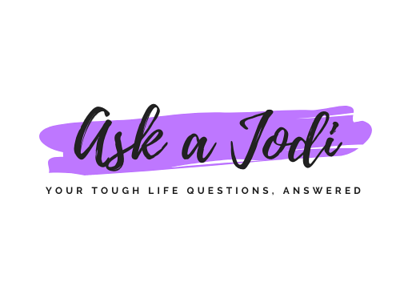
A few years ago, I bought the domain Ask a Jodi and thought I would do videos answering questions readers had about life and everything after. It was actually my sitting on the ground to dig out a tripod from my drawer that led to my re-opening the leak in 2018.
I shelved the video idea as it was infeasible, and with the physical strain this year’s posts about COVID-19 took on me, I decided that writing would need to come second to something else.
I’ve long said I’d write if no one were reading. But unfortunately as I said, my body and writing don’t get on as well. So a short (10-15 min) podcast is where I netted out, specifically to answer the many questions I receive from readers about resilience, grief, hope, and so much more.
This will take time for me to get off the ground, because I’ve learned everything takes more time when you’re sick. I look forward to sharing it, when it’s ready.
If you’ve got a question for me that you’d like me to address in a podcast episode, I’ve made a Google Form here for you to send it my way.
Redesigning Legal Nomads
This site started on Blogger and moved to WordPress in 2010. It’s gone through quite a few resdesigns since 2008.
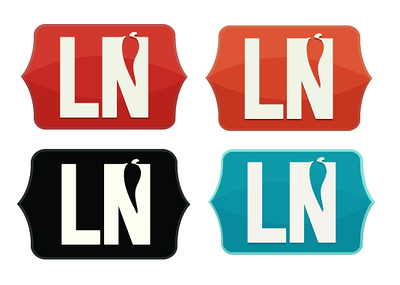
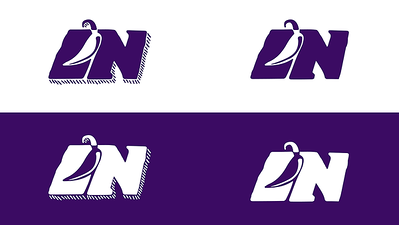
It’s been a few years, and this time the redesign will streamline existing categories into a few main ones, and link out to the courses and resources I’ve listed above. I also want to brighten up the colours and update the pictures and ‘about’ page to reflect the transitions I’ve gone through over the last years.
I’ll also be changing my slogan from “Telling Stories Through Food” to “Curious About Everything.” The new slogan better reflects my present, though it also is always who I’ve been.
Audio recordings for Accessibility
Some of my readers who have CSF leaks (spinal or cranial) or who are chronically ill have asked if it would be possible to record posts in audio form, specifically the ones about meditation and my leak journey. My goal is to record these before I start the podcast, warming up to audio for starters but also making it easier to access content for the people who find reading difficult.
Newsletter Back Up and Running
Links I Loved was a newsletter I started to share the interesting links that I read, including those I shared on Twitter. I’ve had the newsletter disabled for the last year and a half because my pain levels fluctuate sufficiently that I felt I couldn’t commit to putting it out every month as promised.
With the redesign and the podcast, I am starting it up again. It will house a few great reads as well as general updates from my work, and podcast planning, and more. You can sign up here.
Supporting Legal Nomads
This is the question I get the most from you all: “how can I support you?”
I feel incredibly lucky to have an incredible, caring community. I say this often, and will continue to say so. Even during these bewildering times when just about everyone’s reality has become warped, you still reach out to ensure that I’m holding up ok.
As with last year, the easiest support is via an Amazon gift card to jodi-at-legalnomads.com, which is where I get some of the harder-to-find items that aren’t available at the grocery store. With COVID-19, my neighbours/family/friends have helped with groceries, and ordering from Amazon means people don’t have to go hunting for tiger nut flour.
There’s also my food maps for 6 countries, with Canada up next. And they’re beautiful.
Honestly, there isn’t much else at the moment! Support the podcast when it launches, and share my work if it resonates. The care I need day-to-day is the most pressing, and thankfully I have family (and now neighbours and friends!) to help with grocery runs during the pandemic, and who drop by for socially distanced visits while it’s still warm.
***
My friend Cheryl, who I’ve featured here, says her life mantra is LSAT. That she’s a former lawyer makes this funny, since it’s not the LSAT of our nightmares. Her LSAT means love, surrender, acceptance, and trust.
A lot harder to embody than fear and anger and loathing.
A lot easier to say than do.
And yet, a worthy use of mental time and energy.
Every moment you’re not in a state of surrender, you’re in a state of lack.
That’s what gets me through each day.
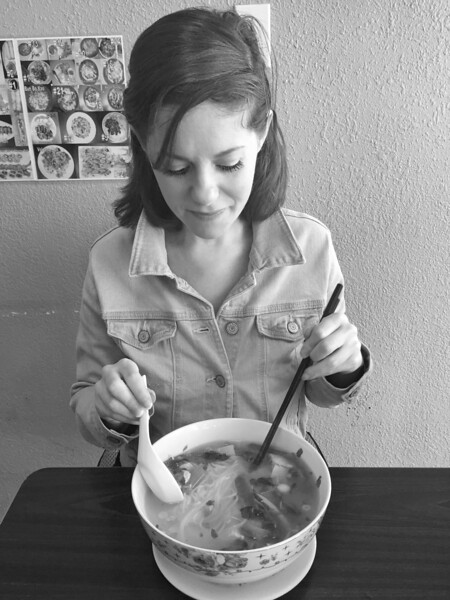
Well, that and soup.
-Jodi
Some Books to Read During Tough Times
- Full Catastrophe Living, by Jon Kabat-Zinn. As the creator of mindfulness-based stress reduction programmes, Zinn focuses on mind-body strategies derived from meditation and yoga to counteract stress, establish greater balance of body and mind, and help you get out of the rut of fearing pain.
- Self-Compassion, by Kristin Neff. Self-esteem work isn’t the fix to perfectionism, argues Neff. Accepting the present, being kind and compassionate to ourselves and still striving to do better is. The book offers exercises and questions in each chapter to help.
- When Things Fall Apart, by Pema Chodron. I picked this book up a few years ago, but wasn’t really ready to read it. Or rather, I was not yet willing to accept the pain and change my perspective about it. I was still looking for a fix. Chodron writes that when we are continually overcome by fear, anxiety, and pain, the way out is to stop bracing against it and learning to stay open. Not easy, and you have to be willing to read her words without judgement, but I’ve found them very helpful.
- Everything is F*cked: A Book About Hope, by Mark Manson. If you enjoyed the first part of this blog post, Mark’s entire book addresses a similar theme. He looks at our collective hopelessness, the rise of materialism, and provides his thoughts on how to get through it feeling stronger than before.
- Man’s Search for Meaning, by Victor Frankl. Referenced above. Frankl argues that we cannot avoid suffering but we can choose how to cope with it, find meaning in it, and move forward with renewed purpose. Frankl’s theory, known as logotherapy, holds that our primary drive in life is not pleasure, but the discovery and pursuit of what we personally find meaningful.
- The Body Keeps the Score: Brain, Mind, and Body in the Healing of Trauma, by Bessel Van Der Kolk. This book is for those who have also dealt with chronic pain, and is one I recommend often to help people understand that their nervous system and body raise the floor on reactivity when trauma is involved. The book looks at trauma and how it encodes in the body, as well as some treatments that are less traditional, like neurofeedback, that work by rewiring the brain and how it responds to stress.





